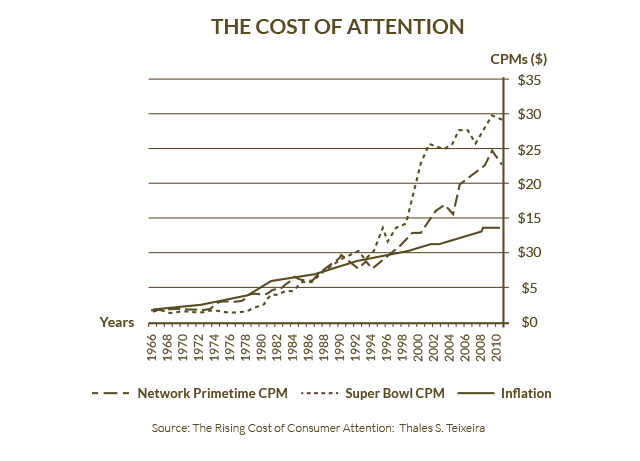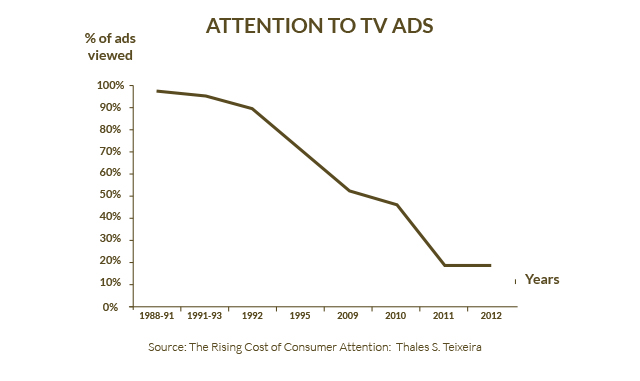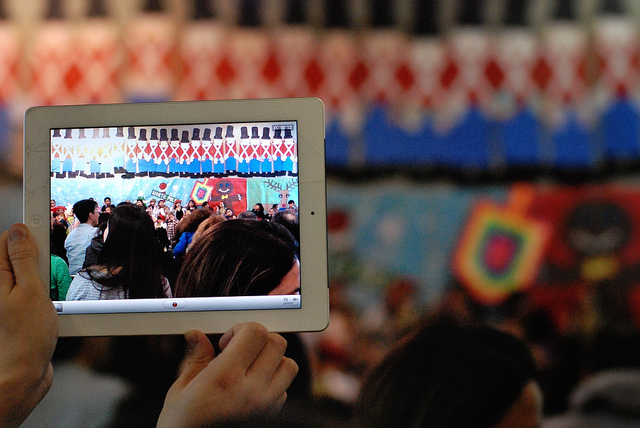Unlock the Magic in Your Story Now
Get the Free 20 questions to Ask Before Launching Your Idea workbook when you sign up for occasional updates.
Get the Free 20 questions to Ask Before Launching Your Idea workbook when you sign up for occasional updates.
Articles filed in: Strategy
No Business Is In A Market Of One
 When dance partners compete they know the other couples are there on the dance floor with them, but they never focus on what the competition is doing. Instead they relentlessly hone each move and perform it for the audience as if it were their only chance to dance the dance. They don’t allow the fact that they are competing to stop them dancing.
When dance partners compete they know the other couples are there on the dance floor with them, but they never focus on what the competition is doing. Instead they relentlessly hone each move and perform it for the audience as if it were their only chance to dance the dance. They don’t allow the fact that they are competing to stop them dancing.
It’s our competition’s job to compete and yet we’re often surprised when they do. We complain when ideas are stolen or replicated. We spend at least as much time looking over our shoulder at the competition as we do on practicing our steps in readiness for the performance.
What would the world look like if you focused on doing the work as if today was the last time you would get to do it?
You can allow the noise from the competition to fade into the background. You can chose to act as if you were the market of one for the people you want to serve.
Image by Wigwam Jones.
The First And Last Question Your Customers Subconsciously Ask
 And the one you must spend a great deal of your time answering….
And the one you must spend a great deal of your time answering….
Why should I care?
Why should I care about your new app?
Why should I care that your innovation pioneers the latest technology?
Why should I care about your fundraising campaign and not that one?
Why should I care about the time you’ve invested in elegant design?
Why should I care that you showed up today to play that tune?
In a world of finite time and infinite choices it’s easier to rationalise walking past than ever before.
The only way to matter is to work out what matters first. You need to give people a reason to stop and listen to your song.
Image by Alfonso.
Stop Selling Stuff, Start Selling Stories
filed in Marketing, Storytelling, Strategy
 David is a genius who happens to sell for a living. I watched him sell a $150 pair of Ugg boots to a woman who had been killing time wandering through his souvenir shop with no big agenda one wet Friday afternoon.
David is a genius who happens to sell for a living. I watched him sell a $150 pair of Ugg boots to a woman who had been killing time wandering through his souvenir shop with no big agenda one wet Friday afternoon.
He began, not as many salespeople would, by asking what she was looking for and instead he asked, who she was looking for. From there questions and answers easily flowed. The age of the woman’s granddaughter. The story about how she was always asking her grandma to buy her a pair of ‘expensive fake Ugg boots back home’. The grandma’s concerns about how they might damage her feet or make them smell.
David rearranged each of her responses effortlessly, like pieces of a jigsaw puzzle into a solution. One by one he dispelled the woman’s fears and gained her trust. Then—and only then, did he reflect the story of the moment when grandma would hand the boots over to her granddaughter, in their special reusable bag that would be ‘shown off to friends at school’, back to her.
“I might even get a hug for these.” she said, as she handed over three fifty dollar notes.
And there, expressed in that single sentence was what David had already known.
The best salespeople, marketers and brands don’t actually sell us stuff they’ve made in factories or built with lines of code. They don’t even sell us things we want or need. They simply sell the story we want to live and believe back to us.
Image by Gary Jarvis.
The Value Of Asking What If
 Have you ever been stuck waiting outside your hotel room while it was given the daily once over?
Have you ever been stuck waiting outside your hotel room while it was given the daily once over?
It turns out that for some guests housekeeping can feel like more of an intrusion than a service.
On average it costs a hotel $22 a day to deliver housekeeping services for each room. That figure probably doesn’t account for recruitment of staff and the use of extra towels and linen.
I recently stayed at a Marriott hotel where they were trialling a scheme which offered guests the choice to opt out of housekeeping during their stay in exchange for either restaurant credit or loyalty points. Hardly rocket science, but somehow it felt good to be offered the option and to feel like the hotel had considered my wants and needs as an individual.
Someone had taken time to consider the guest’s worldview and asked the question—
“What if some guests value privacy more than a freshly made bed?”
Allowing customers to define what value is for them in this situation makes good business sense and yet hotels have been using a similar cookie cutter, guest services formula forever.
Asking ‘what if’ feels risky because it means you might have to acknowledge that what you’ve worked hard to put in place might not be the best solution. But if we don’t have the courage to question our assumptions we’re choosing to stagnate by default.
Image by James Yu.
How To Hit Your Target
 When an archer aims she doesn’t keep her eye on the target. She knows the target is there, but she sees it vaguely, or sometimes not at all. The point of aim is always closer than the target.
When an archer aims she doesn’t keep her eye on the target. She knows the target is there, but she sees it vaguely, or sometimes not at all. The point of aim is always closer than the target.
Hitting the target is determined by how she aims, not by the fact that she’s shooting for it.
So much of our business practice is focused on some future outcome, a key performance indicator, a better bottom line, another successful round of funding, more subscribers, an uptick in the number of orders—on the moment that we hit the target. But we don’t hit targets because we continually focus on them, we know the target is there but the target is not the focus. The focus is on how we aim, on doing the right thing today and then building on that, by doing it over and over again.
Your target is not some distant outcome or a metric of tomorrow, your target is how you’re aiming right now.
Image by Max Lim.
Why Not Go First?
filed in Marketing, Storytelling, Strategy
 An article about successful disruptive businesses like Warby Parker or Square spreads like wildfire through social media channels and whole libraries could be filled with stories about what makes Apple unique. It’s natural to want to learn from the successes of others and to wonder how we can borrow a bit of their magic.
An article about successful disruptive businesses like Warby Parker or Square spreads like wildfire through social media channels and whole libraries could be filled with stories about what makes Apple unique. It’s natural to want to learn from the successes of others and to wonder how we can borrow a bit of their magic.
Following in their footsteps might seem like a shortcut, the irony being that pioneers mostly succeed by being pioneers—by doing what others don’t dare to do, because it isn’t obvious or easy.
Our biggest learnings and successes come from going first. You don’t have to be ‘the next Apple’ to create your own brand of magic.
Image by Paul Mullett.
Life After Launch Day—Introducing The One Page Marketing Plan
filed in Marketing, Storytelling, Strategy
 It’s not hard to remember the lead up to the birth of your first child. Forty weeks of sheer focus on everything from what cheese to eat—or not to eat, to a birth plan that read like a military operation. I always found it odd that there was a ten-point plan for every eventuality during the twenty hours of labour and yet we had no plan for how to navigate the next twenty years after that.
It’s not hard to remember the lead up to the birth of your first child. Forty weeks of sheer focus on everything from what cheese to eat—or not to eat, to a birth plan that read like a military operation. I always found it odd that there was a ten-point plan for every eventuality during the twenty hours of labour and yet we had no plan for how to navigate the next twenty years after that.
Giving birth to ideas is equally seductive. Thoughts about what it will feel like to see your idea (innovation, product, service, book, video, designs) in the world are what drives people to push through when the going gets tough. Often though that vision begins and ends with launch day, with most of your energy being focused on giving birth to the project.
Day one is easy to imagine—but what’s the plan for day two?
Below is a roadmap to help you start thinking about life after launch day. This is simply a template of touchpoints, it doesn’t become a plan until you begin to find answers to questions about what the future might look like. Which must be easier to predict than the first twenty years of a child’s life.

FREE PDF DOWNLOAD THE ONE PAGE MARKETING PLAN
If you get my monthly newsletter look out for The Marketing Plan Workbook next month.
Image by Chimpr.
What’s More Important Than Building Awareness?
 Ask any business owner what their most pressing problem is and ‘building awareness’ is sure to be on the list. Maybe it’s on your list too? In a world where it’s harder to get attention, gaining mind share is a priority for everyone.
Ask any business owner what their most pressing problem is and ‘building awareness’ is sure to be on the list. Maybe it’s on your list too? In a world where it’s harder to get attention, gaining mind share is a priority for everyone.
We think that if we can just get a few more people to know about us that we’ll be all set.
I often tell the story of the two side-by-side cafes in our neighbourhood. On days when there is a line of twenty people waiting for either a table or a takeaway coffee at one, the other is virtually empty. We all know the empty cafe is there, we can’t miss it…and yet nothing changes. It’s not that the owners don’t care, it’s that all of their energy is focused on tactics that get people to notice.
Perhaps the bigger questions for them to consider (and maybe us too), before building awareness with more signs and new menus is—why will one person care that we’re here in the first place? What are we doing that’s going to compel that person to tell two friends and then come back tomorrow?
What’s more important than building awareness is what you plan to do with it once you’ve got it, because top of mind is not the same thing at all as close to heart.
Image by Patrick Gage Kelley.
 Attention is either earned or paid for. Whether you pay for advertising or not you still buy your audience’s attention every day. You may not pay in dollars and cents, but either way there is a cost attached to getting people to notice or engage.
Attention is either earned or paid for. Whether you pay for advertising or not you still buy your audience’s attention every day. You may not pay in dollars and cents, but either way there is a cost attached to getting people to notice or engage.

 Let’s consider how the business world has been turned on its head in less than a decade.
Let’s consider how the business world has been turned on its head in less than a decade.